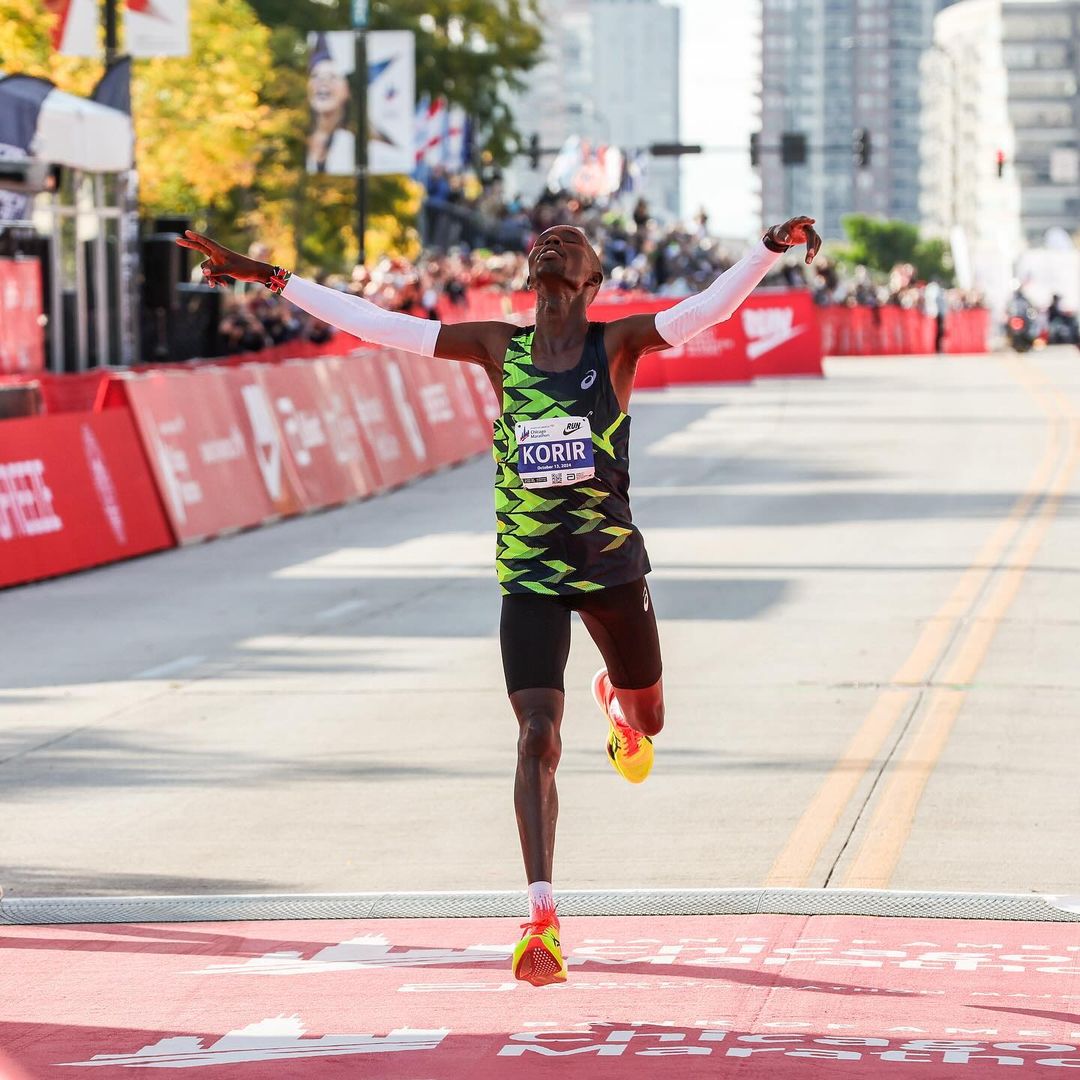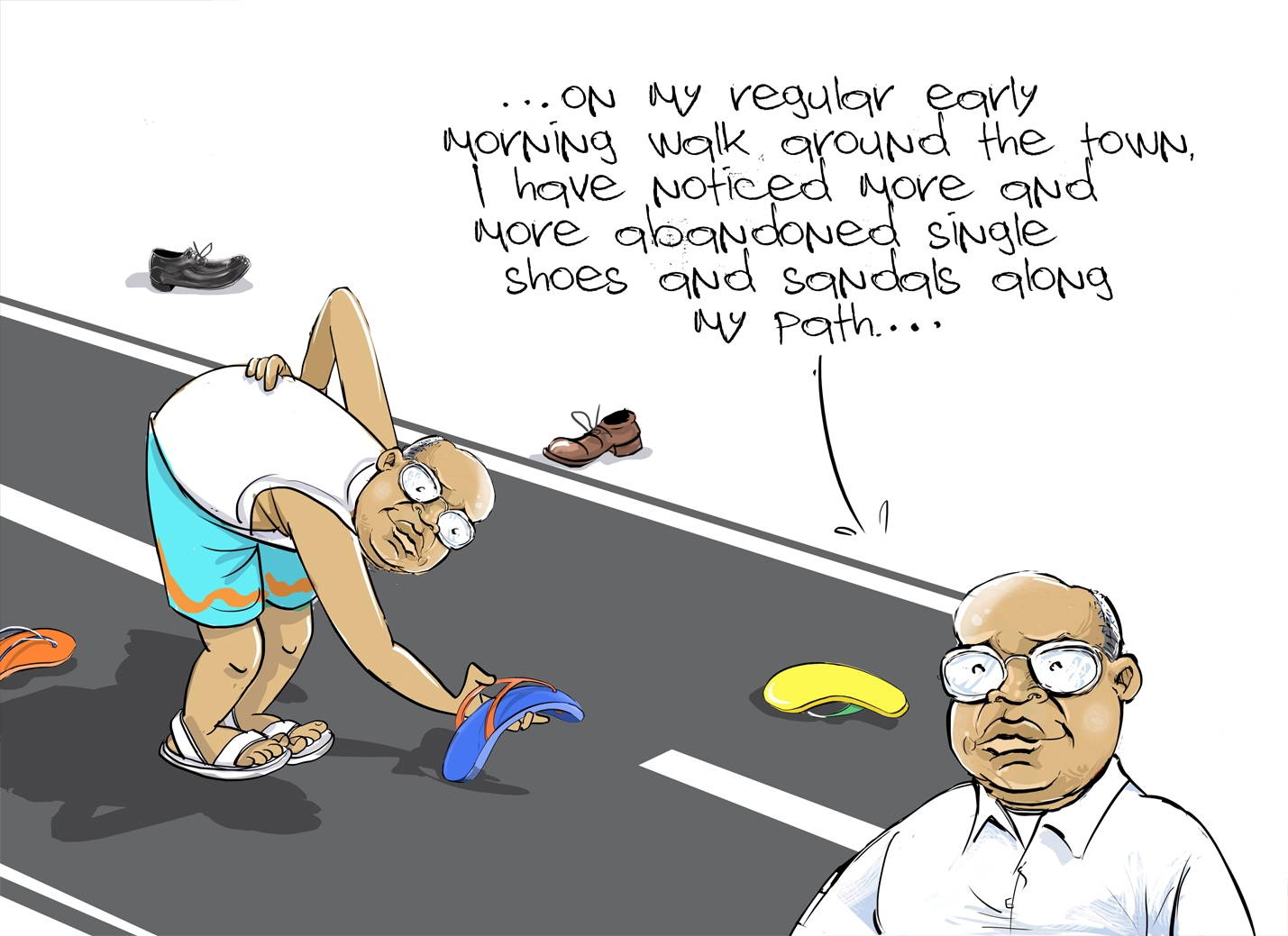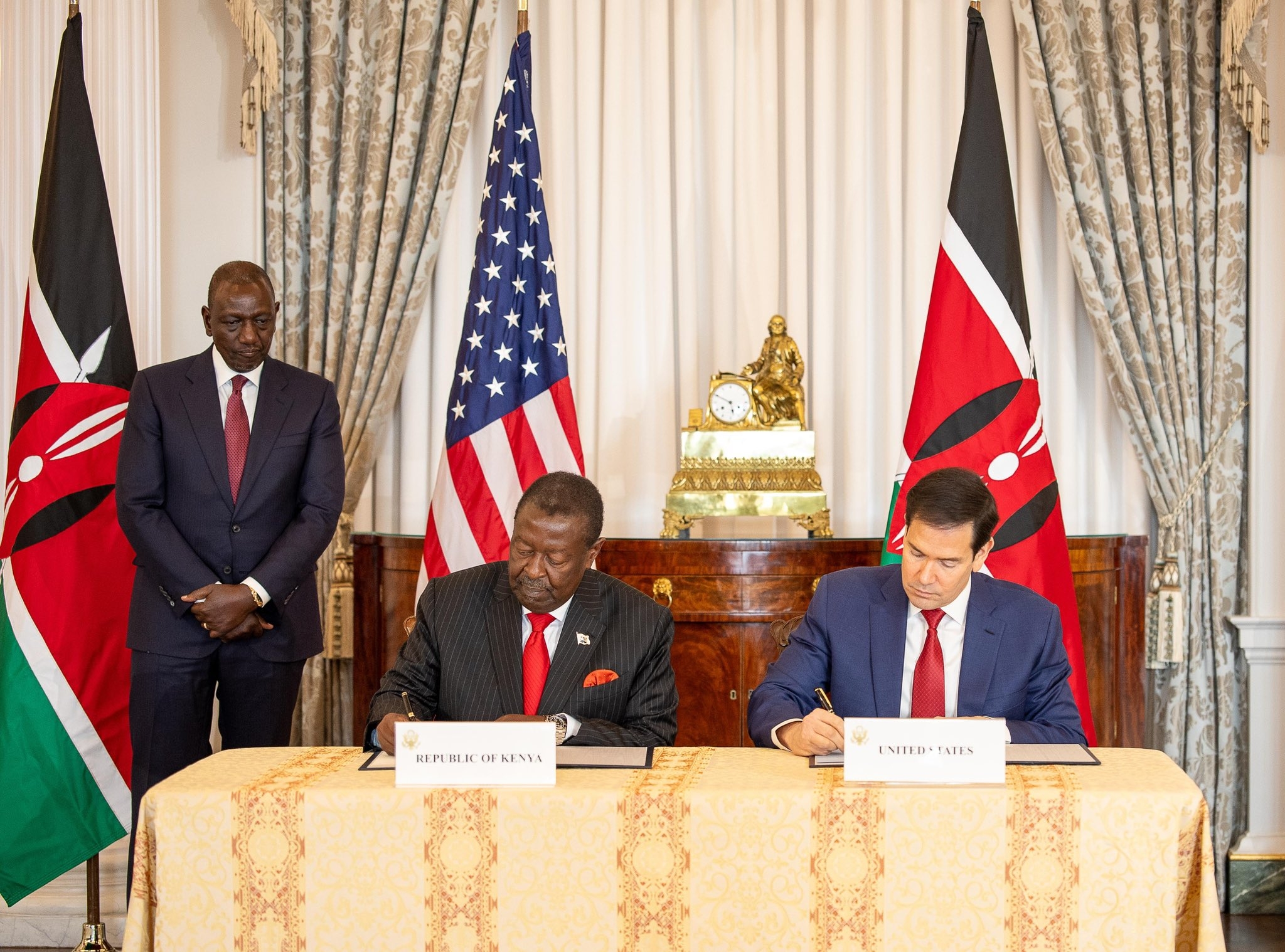

Former marathon world record holder Paul Tergat believes Uganda’s Jacob Kiplimo and Kenya’s John Korir’s blistering attack on the late Kelvin Kiptum’s record at the Chicago Marathon is a clear sign that the men’s global mark is living on borrowed time.
Kiplimo and Korir had launched an audacious assault on Kiptum’s world record of 2:00:35, set on the same Chicago course in 2023.
The pair took the race by storm, setting a record-breaking tempo early on and laying down the gauntlet for the rest of the field, who found it hard to keep up.
At 5km, the duo clocked 13:58, faster than Kiptum’s 14:26, before going through 10km in 28:25 against Kiptum’s 28:42. By 15km, they had posted 42:40 to Kiptum’s 43:09, and at the halfway mark (21km), they recorded 1:00:16, slicing more than half a minute off Kiptum’s split of 1:00:48.
Their relentless charge continued through 25km in 1:11:12, well inside Kiptum’s 1:12:04. But the strain began to show after 30km, where Kiplimo broke away from Korir with a decisive surge. The Ugandan crossed 30km in 1:25:21, still well ahead of Kiptum’s 1:26:31 and hit 35km in 1:39:53 to Kiptum’s 1:40:22.
However, the punishing pace began to take its toll. Kiplimo slowed slightly by 40km, clocking 1:55:10, compared to Kiptum’s 1:54:23. The Ugandan eventually crossed the line in 2:02:23 to win the Chicago title in only his second marathon appearance.
Kenya’s Amos Kipruto finished second in 2:03:54, while Alex Masai rounded off the podium in 2:04:37. Tergat, a legend in the marathon scene, knows all too well about breaking records.
At the 2003 Berlin marathon, Tergat clocked 2:04:55 to etch his name in history by becoming the first man to dip under 2:05 over 42km. His feat erased Khalid Khannouchi’s 2002 world record of 2:05:38 set in London.
Tergat’s reign lasted four years before Ethiopia’s Haile Gebrselassie shattered it with 2:04:26 in Berlin in 2007. With Chicago’s high-octane duel fresh in mind, Tergat is convinced the men’s record will soon tumble.
“Of course, that time will be lowered as time goes by. I am hopeful that in the near future, that mark will come down,” Tergat told the Star.
The former NOCK president pointed to Kiplimo’s aggressive splits as evidence of both brilliance and overexertion. “The first half was so fast that Kiplimo burned himself out towards the end. You could tell that in the last two or three kilometres, he was finished,” Tergat observed.
“Our late Kiptum maintained a steady pace that got faster gradually until the end, and that’s how he broke the world record.”
Tergat underscored that to challenge Kiptum’s 2:00:35, precision pacing and race management are non-negotiable. “Marathon is a huge mountain; if you don’t plan well, you pay at the end. Kiplimo was lucky to finish; some athletes wouldn’t even have made it.”
“I’m happy he finished strong and ran a great race,” he added.
The Kenyan icon also praised East Africa’s enduring dominance over the 42km distance. “When it comes to the marathon, East Africa reigns supreme. Look at Kenya, Uganda, Ethiopia, and now Tanzania is emerging. We are the best in the world,” he said. “With such deep talent in this region, future generations will continue to produce the very best."
Tergat further attributed the recent explosion of fast times to modern innovation. “Athletes today are taking full advantage of new shoe technology. During our time, we had flat, manual shoes,” he said with a smile.
“I ran 2:04 in my era using manual shoes. With today’s technology, that’s why we’re seeing these incredible times.”
















